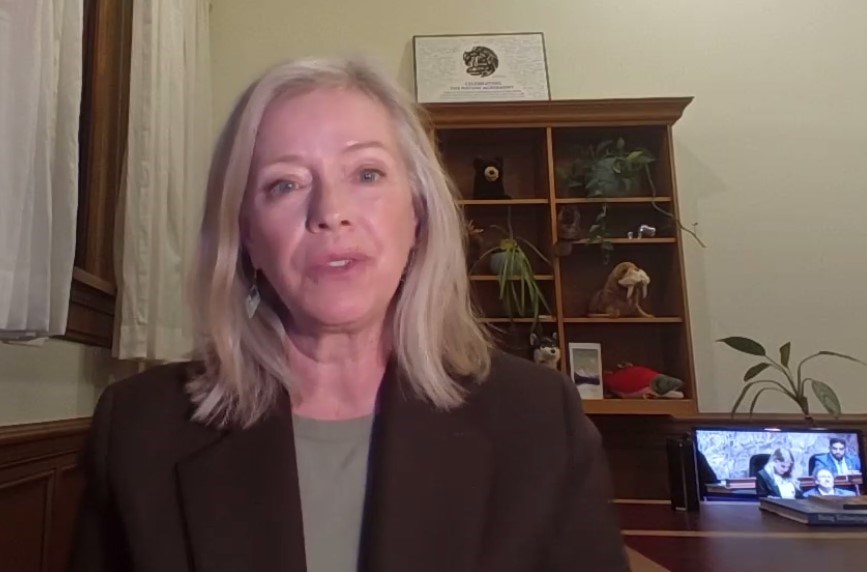The province’s commitment of close to $100 million to the shíshálh Nation, in a time of economic uncertainty, was questioned at a second online Foundation Agreement (FA) renewal info session hosted March 31.
Indigenous Relations and Reconciliation deputy minister, Tom McCarthy, clarified that $79 million in the recently announced provincial support for the Nation was directly related to the renewal and is to be supplied over the five-year term of the agreement addendum signed in August, 2024. He said the additional $25 million promised for Nation housing initiatives is coming from a separate program.
Of the FA renewal funding, $46 million is targeted at economic development, which McCarthy said would benefit “the whole region” of the lower Sunshine Coast, as part of the Nation’s swiya. He pointed to the Nation’s investments in forestry and aggregates as well as its expansive potable water supply plan, as “examples where shíshálh is helping to build a stronger swiya for everyone who lives there."
Answers to come on continued questions about docks
As with the March 20 session, McCarthy and the deputy minister of Water, Lands and Resource Stewardship, Lori Halls, fielded inquiries read into the record by the session moderator. Nineteen questions were posed during the 90-minute virtual session. Moderator Carolyn Kamper noted that the event’s timeframe did not allow for every question submitted since the addendum was released on Jan. 29 to be addressed. She confirmed the province’s commitment to post and answer all inquiries and include the recordings of the online sessions on the related provincial government web page.
Another point promoted by the session spokespersons was upcoming and continuing public engagement on components of the FA. Those are to include meetings to start in mid-April related to commercial moorages in the swiya-wide dock management plan and outreach on land use management planning under the FA.
Much of the discussion on the final day of March focused on dock management plan issues. Halls responded to concerns about the length of time being taken to process self-registrations of dock facilities. Noting that the province receives an estimated “1,000” land and foreshore tenure applications every year for a variety of uses (mines, residential, etc.), she added that an updated rent structure for private and commercial docks that fairly reflects 2025 values needs to be developed and then legislated. In spite of those complications, she said her department would be looking “to issue a significant number of licences in the coming months."
Halls stressed the importance of self-registration of tidewater dock infrastructure in the swiya, as that will allow facilities that have existed since July 1, 2024 to be granted a temporary general permission. That will allow them to remain in place until a 20-year licence of occupation can be developed.
A busy March 31 for our MLA
Along with 234 members of the public, the Minister of Water, Lands and Resource Stewardship and local MLA Randene Neill was in attendance at the event. Neill appeared online from a parliamentary office in Victoria, as she was dividing her time between the virtual session and debate and voting in the house on a bill to remove the consumer carbon tax, which passed in the late hours of March 31.
Expressing a willingness to engage with her constituents on their concerns, Neill was excited to report her team “had picked up the keys” that day for her constituency office on Inlet Avenue in Sechelt. While the official opening and office hours have not yet been announced, she stated that if “the lights are on” and staff are available, the public are invited to drop in.



